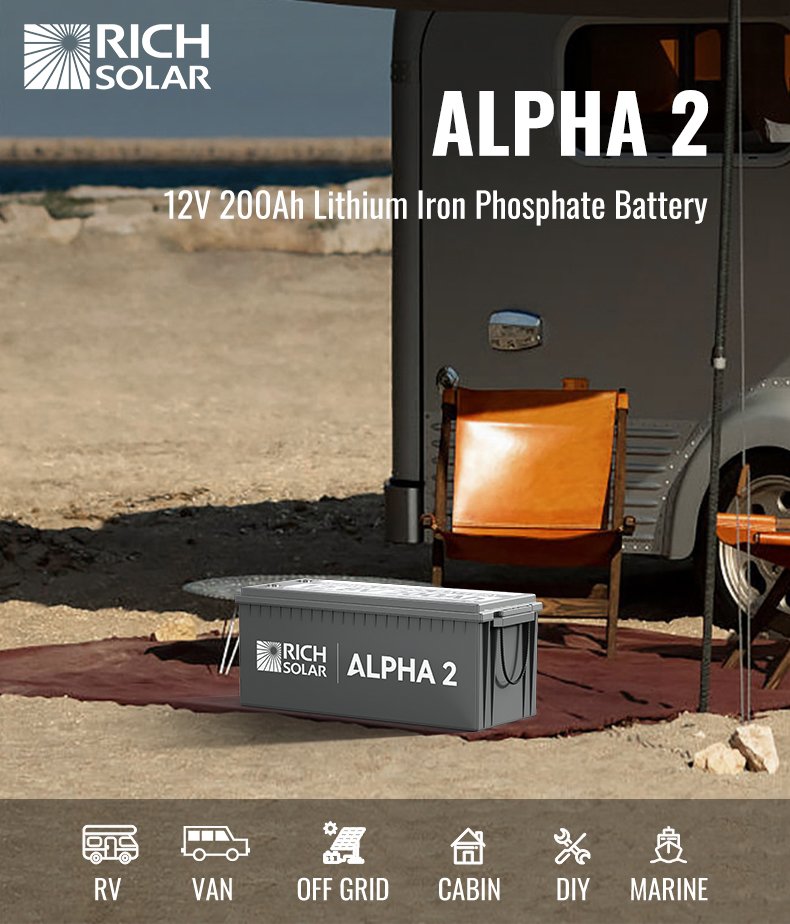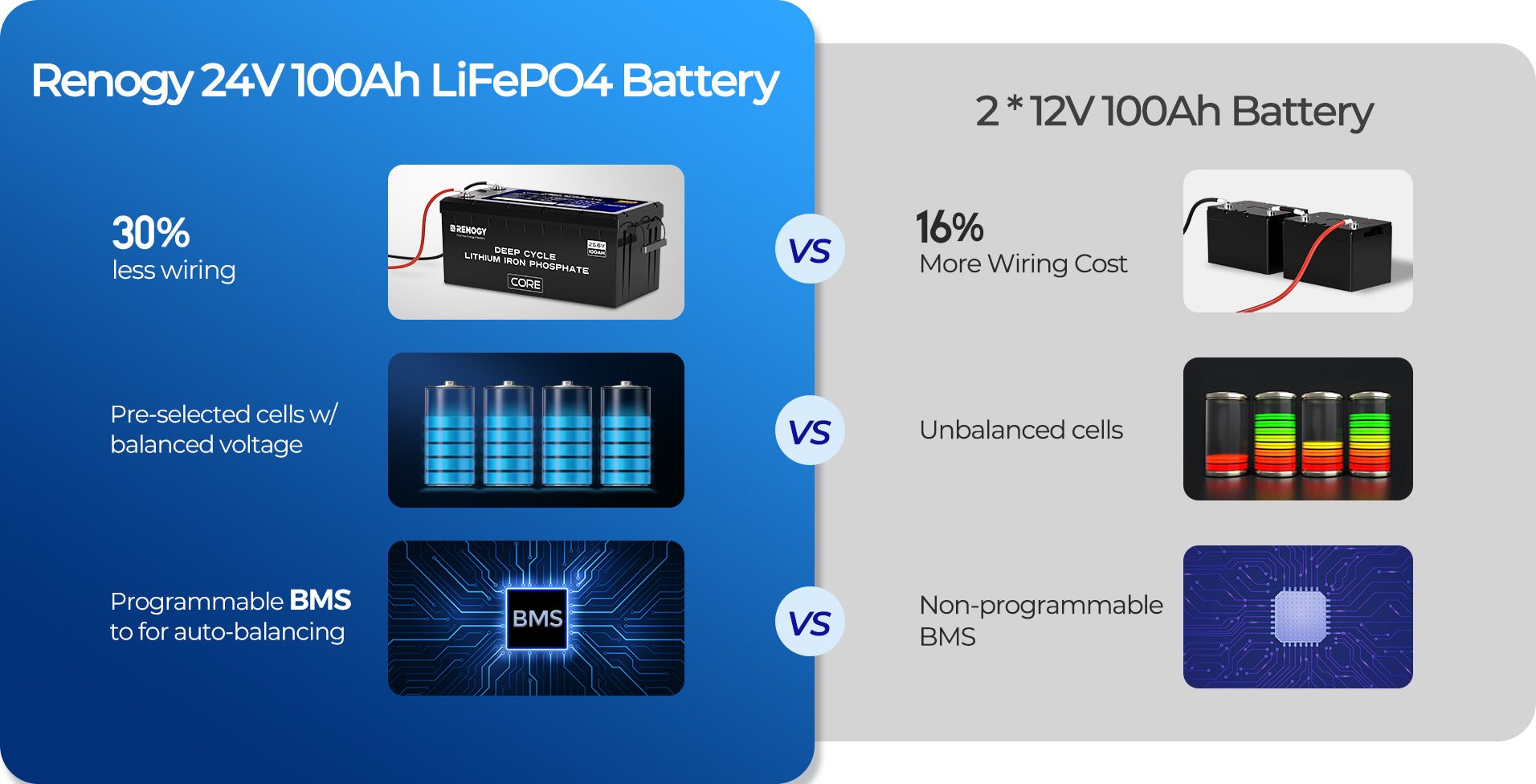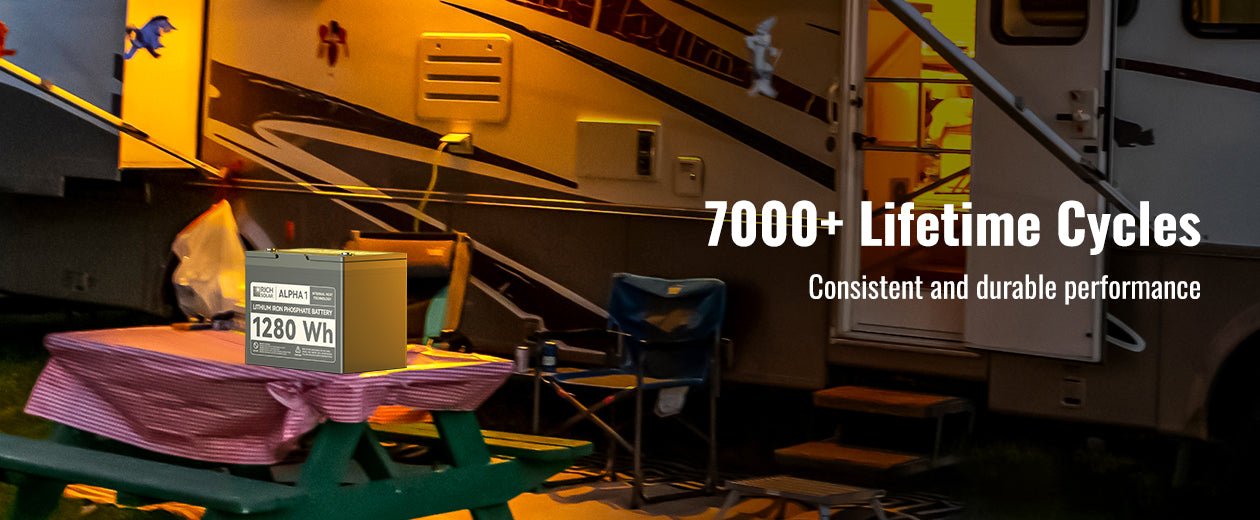
Whether you're looking to power your home or venture off-grid, harnessing the sun's energy through solar panels is a smart choice. However, one critical component often overlooked is the battery. Choosing the right battery for your solar installation can make all the difference in ensuring a reliable power supply. Let's dive into the key factors to consider when selecting a battery for residential and off-grid solar setups.
Solar Batteries Capacity
Capacity is arguably the most crucial aspect of battery selection for solar installations. It determines how much energy the battery can store and, consequently, how long your system can operate without sunlight. Battery capacity is typically measured in kilowatt-hours (kWh), representing the amount of energy the battery can deliver over a certain period. Battery capacity can also be measured in ampere-hours (Ah), manufacturers like RICH SOLAR and Renogy provide both kWh and Ah in their specifications. If you cannot find the kWh, there is a simple formula you can use to calculate kWh from ampere-hours.
When determining the capacity needed for your solar installation, consider your energy consumption patterns, especially during peak usage hours and overnight. To get an accurate reading of how much energy you use, it is common to use your monthly electric bill which is measured in killowatt-hours. A higher-capacity battery allows for more energy storage, providing greater autonomy during periods of low sunlight or inclement weather. However, it's essential to strike a balance between capacity and cost, ensuring you invest in a battery that meets your needs without overspending.
Solar Batteries Voltage
Voltage is another crucial factor in battery selection, as it determines the electrical potential or pressure at which energy is delivered. In solar installations, batteries are typically either 12V, 24V, or 48V, with higher voltages often preferred for larger systems due to lower current and reduced energy loss during transmission.
When choosing the voltage for your solar battery, consider the voltage requirements of your solar panels and inverter. Matching the battery voltage to the rest of your system ensures seamless integration and optimal performance. Additionally, higher voltage batteries may offer advantages such as increased efficiency and reduced wiring costs, making them a popular choice for many solar installations.
Solar Battery Life Cycle
Cycle life refers to the number of charge-discharge cycles a battery can undergo before its capacity degrades to a specified level. For solar installations, cycle life is a critical consideration, as batteries are frequently cycled daily to store excess energy generated during the day for use at night.
When evaluating battery options, pay close attention to the manufacturer's stated cycle life and any warranty terms associated with it. Lithium-ion and lithium iron phosphate batteries typically offer longer cycle life compared to lead-acid batteries, making them a preferred choice for many solar applications despite their higher upfront cost. However, factors such as depth of discharge, temperature, and charging protocols can all influence a battery's actual cycle life, so it's essential to follow best practices for battery maintenance and management.
Choosing the right battery for your residential or off-grid solar installation is a decision that requires careful consideration of capacity, voltage, and cycle life. By understanding your energy needs, matching the battery voltage to your system, and selecting a battery with sufficient cycle life, you can ensure reliable and efficient power storage for years to come. With the right battery in place, you can maximize the benefits of solar energy, reducing your reliance on the grid and contributing to a more sustainable future. At Solar Generators and Power Stations Plus, we have a variety of batteries with different capacities and other solar components for your solar installation.







